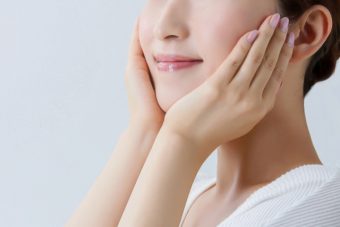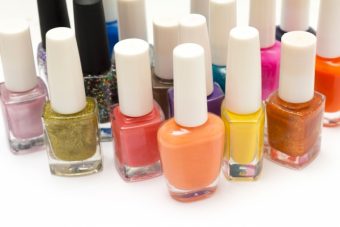These days it is possible to easily obtain cosmetics of various countries as imports / exports, shopping on net and purchases by foreign visitors are on the rise. Especially Japanese cosmetics boast a high popularity both domestically and internationally. Typical importers of such Japanese products include: countries in Asia (Hong Kong, mainland China, Taiwan, South Korea, Singapore, etc.) and ones in Europe and U.S (U.S, France, U.K, Italy, Germany, etc.), with the monetary amount of such imports ever rising.
In addition, it has been shown that more of cosmetics are being purchased by foreign visitors to Japan. Furthermore, “skincare products” (foundation, basic cosmetics) are reputed in Japan among consumers with high quality touted as their attractiveness. This document will explain the strengths of Japanese skincare products, comparing to those in other countries.
Strengths of Japanese skincare products: “high quality and safety”
 Japanese skincare products are considered to have both high quality and safety (safeness) with them. The result of a survey on the images consumers in Asia region entertain toward Japanese cosmetics has revealed that they have positive images toward Japanese cosmetics that have been manufactured after clearing rigorous safety standards; and Japanese medical cosmetics / natural cosmetics without additives are welcomed by consumers susceptible to allergic symptoms.
Japanese skincare products are considered to have both high quality and safety (safeness) with them. The result of a survey on the images consumers in Asia region entertain toward Japanese cosmetics has revealed that they have positive images toward Japanese cosmetics that have been manufactured after clearing rigorous safety standards; and Japanese medical cosmetics / natural cosmetics without additives are welcomed by consumers susceptible to allergic symptoms.
Moreover, the result of a questionnaire on the images of consumers in 6 European countries (U.K, Germany, France, Italy, Spain, Netherland) toward Japanese products has shown that many respondents deem Japanese products (in general) as high-quality and thus Japanese cosmetics are likewise reputed as high-quality among them. Therefore, it has become evident that Japanese cosmetics including skincare ones are highly evaluated in their quality and safety by consumers in other countries.
Japanese consumers with tendency to place importance on use of skincare products
 It also can be seen that Japanese consumers tend to place importance on use of skincare products; Japanese cosmetic makers are thus intent on such products strategically. In fact, the result of a questionnaire on the frequency to use skincare products in various countries (U.S, Japan, mainland China, U.K) has revealed that 96% of Japanese daily use skin lotion while only 45% in U.S, 37% in U.K, and 26% in China do so.
It also can be seen that Japanese consumers tend to place importance on use of skincare products; Japanese cosmetic makers are thus intent on such products strategically. In fact, the result of a questionnaire on the frequency to use skincare products in various countries (U.S, Japan, mainland China, U.K) has revealed that 96% of Japanese daily use skin lotion while only 45% in U.S, 37% in U.K, and 26% in China do so.
Moreover, as to the frequency to use facial wash, 90% of Japanese daily use it, while only 50% of so do in other surveyed countries. These results tell us that Japanese consumers have a higher awareness toward proactive use of skincare products than ones in other countries; regarding Japanese skincare products, ones with higher reputation dominate a higher market share; skincare products made in Japan, therefore, will invoke an image of high quality to consumers.
On the other hand, regarding the strengths of skincare products in other countries, in Europe and U.S, the brands of makers of skincare products and their products are highly reputed; such products are low-priced in China and South Korea. The result of a survey on images of consumers in Asia region toward cosmetics of each country shows that ones in Europe are of fashion, have kept a high credibility ever since, with makers aspiring to new products, but it is also pointed out that they are expensive for their high brand value; images toward cosmetics in mainland China and South Korea are around low prices different from ones in Europe and U.S, but involve concerns over quality, practices of imitation (copy-right violation) or credibility around safety issues not sufficiently accumulated yet.
 In addition, as mentioned above, consumers in Europe and mainland China do not have much of desire to proactively use skincare products, with the frequency of use and market share of makeup cosmetics and perfumes (high-end products) on a higher level than those of such plain products. Therefore, it is obvious that skincare products in other countries are not considered so important as in Japan, while brand images of renowned makers and cheapness are embraced for.
In addition, as mentioned above, consumers in Europe and mainland China do not have much of desire to proactively use skincare products, with the frequency of use and market share of makeup cosmetics and perfumes (high-end products) on a higher level than those of such plain products. Therefore, it is obvious that skincare products in other countries are not considered so important as in Japan, while brand images of renowned makers and cheapness are embraced for.
Japanese high level of demand leading to the high quality of cosmetics
 As explained in this document, when Japanese skincare products are compared to those in other countries, the former has strengths in that consumers have awareness of their images as high-quality, safe and secure. On the other hand, skincare products in other countries are deemed cheaper or of fashion. Generally speaking, so-called skincare products are to be used over a long term with high quality and safety required as they directly touch the broad area of skin.
As explained in this document, when Japanese skincare products are compared to those in other countries, the former has strengths in that consumers have awareness of their images as high-quality, safe and secure. On the other hand, skincare products in other countries are deemed cheaper or of fashion. Generally speaking, so-called skincare products are to be used over a long term with high quality and safety required as they directly touch the broad area of skin.
In this regard, Japanese skincare products have been highly reputed for their quality and safety as mentioned; it may be possible for skincare products made in Japan to be similarly evaluated (in other countries). In Japan, furthermore, the consumer awareness toward daily use of skincare products is rather high, which indicates that the level of skincare products sold in the market should be also high. It can be concluded, therefore, that producing skincare products in Japan will not only add a god image of high quality and safety to the products but also enable production of high-level skincare products that can garner an outstanding evaluation out in the world.
[Reference]
- https://www.isc.hbs.edu/resources/courses/moc-course-at-harvard/Documents/pdf/student-projects/Japan_Skin%20Care_2013.pdf
- https://blair.jp/171107-overseas-skin-care
- https://www.hakuhodo.co.jp/uploads/2012/11/20121119GlobalHABIT_6.pdf
- http://warp.da.ndl.go.jp/info:ndljp/pid/8702172/www.mizuhobank.co.jp/corporate/bizinfo/industry/pdf/msif_084.pdf
- http://ir.c.chuo-u.ac.jp/repository/search/binary/p/7082/s/4914/
- https://www.jnto.go.jp/jpn/news/member_news/m20180712_3.pdf
- https://www.hakuhodo.co.jp/uploads/2016/02/20160229_2.pdf
- https://www.hakuhodo.co.jp/uploads/2012/02/20120210GlobalHABIT.pdf
- http://studenttheses.cbs.dk/xmlui/bitstream/handle/10417/6170/Marleen_ter_Heide.pdf?sequence=1


